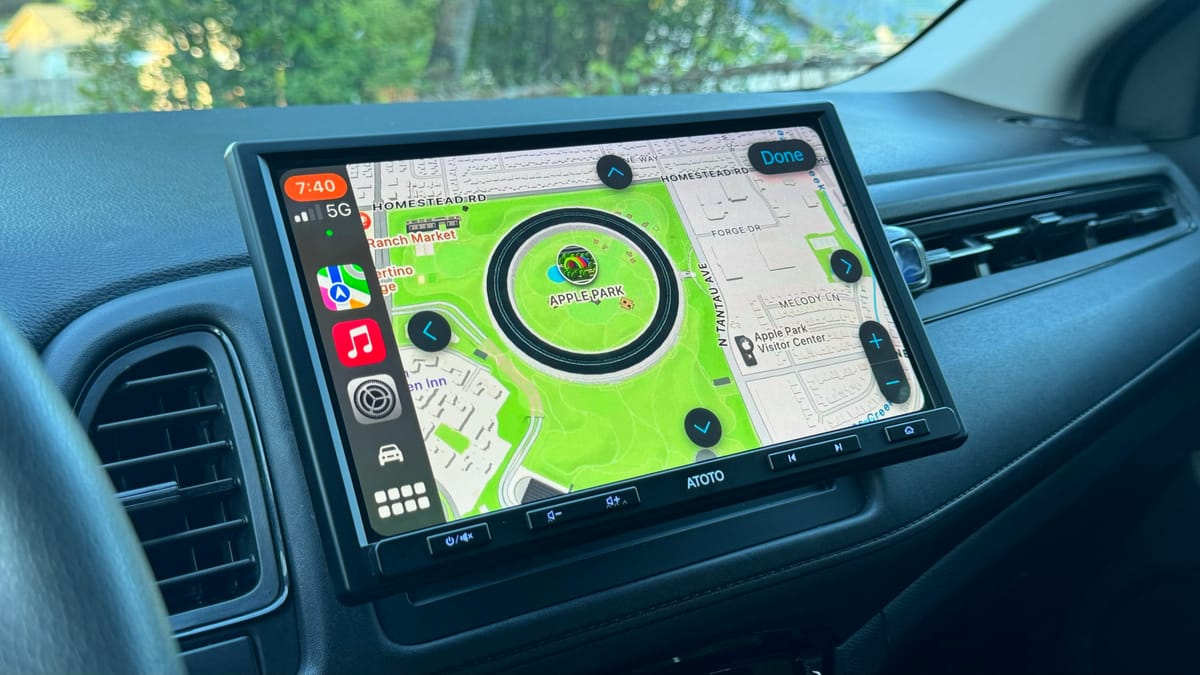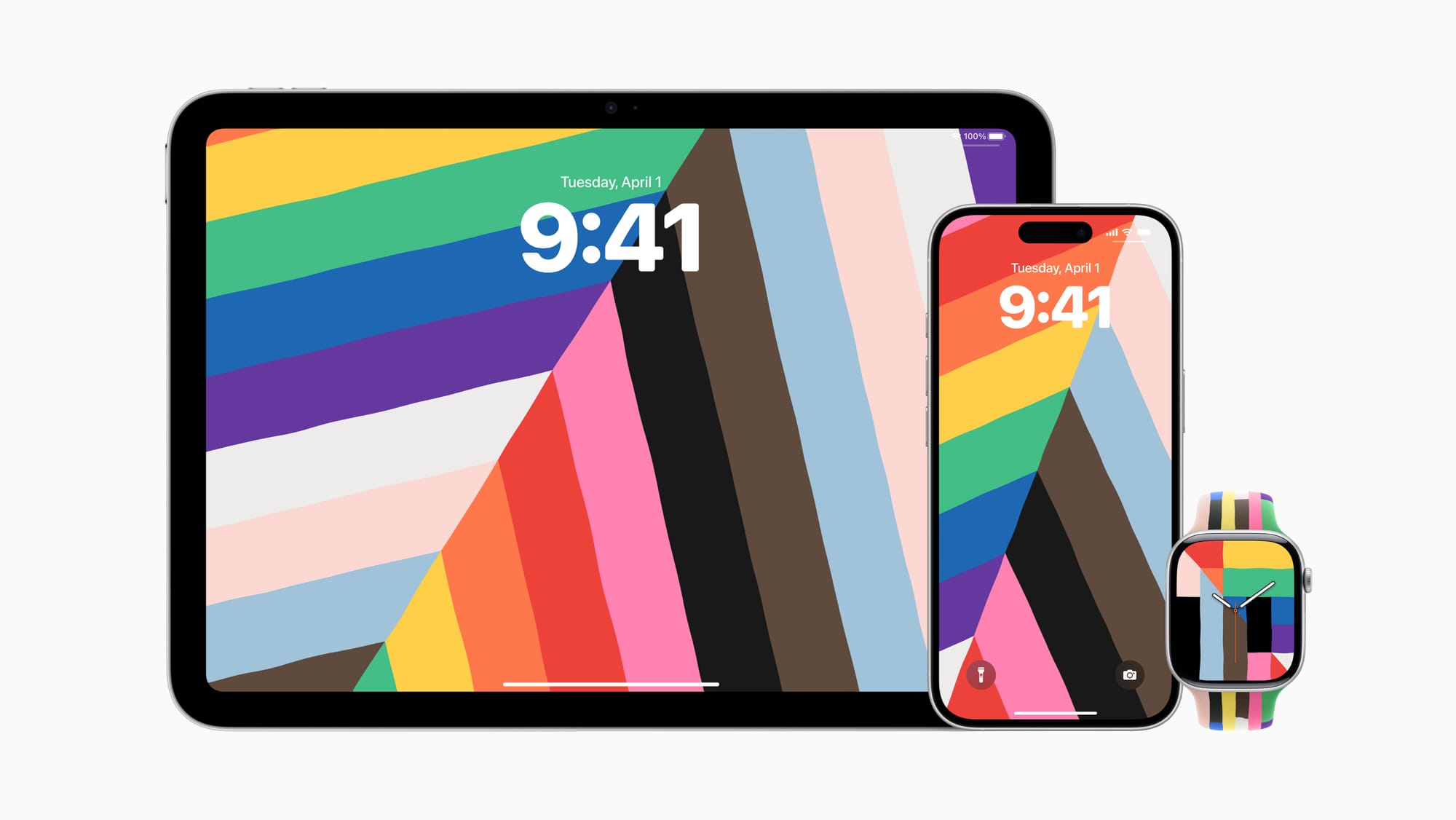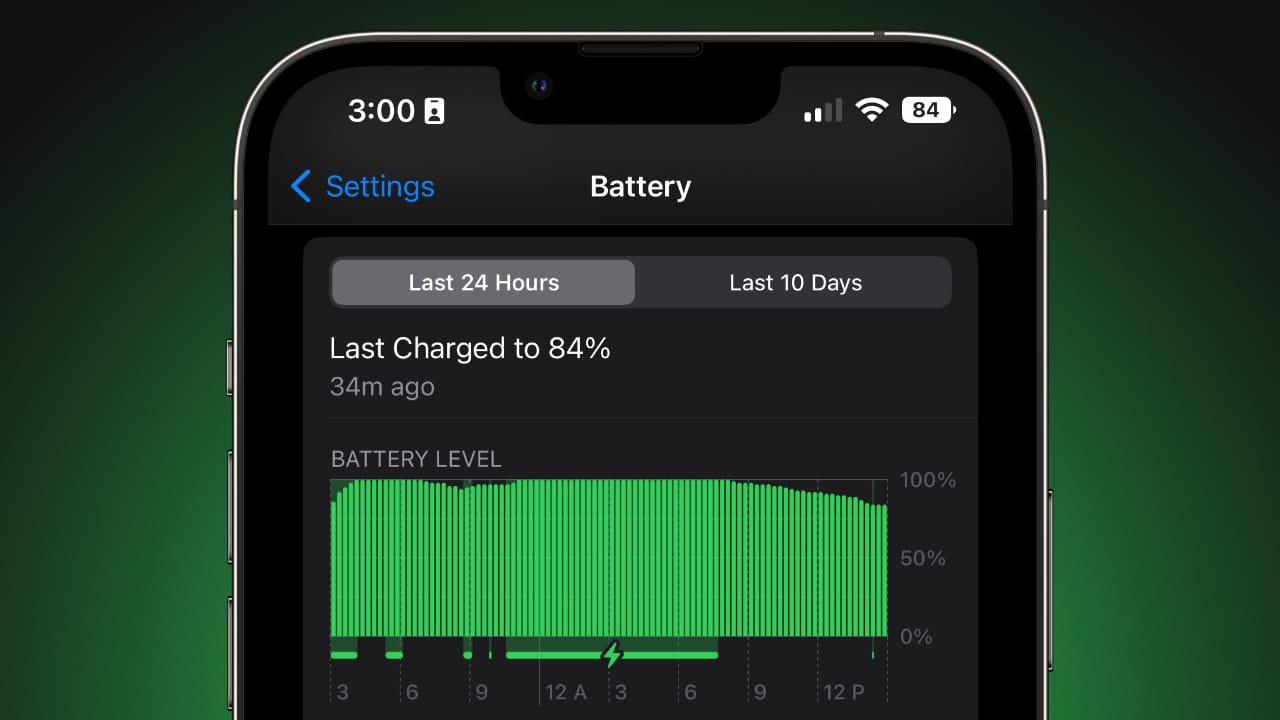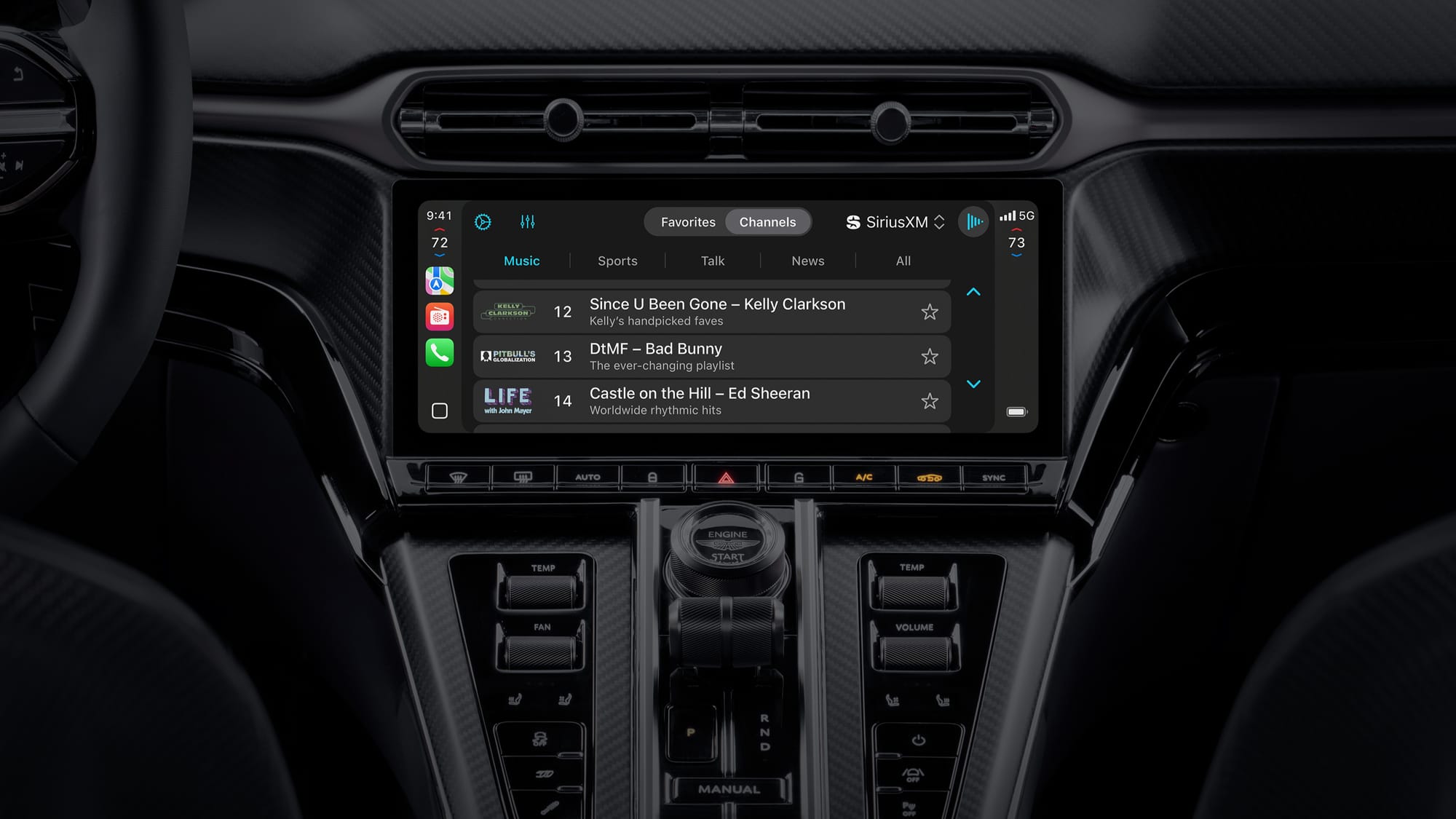Apple's week May 16: Ultra Accessibility

It's been a much quieter week for Apple, at least in terms of regulators and business model challenges. However, we've got a slew of tiny announcements around Apple's services and a big preview of accessibility features coming in iOS 19.
And no, Fortnite still hasn't returned to the US App Store. Shocker.
iOS 18.5 and the rest
Apple's operating system updates this week are more about what isn't there versus what is. Sure, we got the Pride Harmony wallpaper and a new Mail setting, but very little else.

The updates should have been focused on refining Apple Intelligence features, specifically the new contextual model that powered Siri and AI requests. However, since that feature was delayed, there's nothing here beyond some security fixes and a tweak to the Apple Vision Pro TV app.
I'm happy that Apple was smart enough to pause the feature if it wasn't ready, but I still think that in this case the company was being overly cautious. There's a good chance that Apple believes it can get its hallucination and error rates under the 10% threshold, but I'm doubtful. As I've said here before, AI is a tool that works well when it is used correctly and users are aware of the risks.
If Apple isn't confident enough to ship the feature and tell users that errors are possible, then they should give up. AI is inherently prone to error and I very seriously doubt Apple will discover some magic formula to reduce that.
Ship or get off the pot.
AI battery management rumor
If you've followed me for a long time you might think I would hate the idea of an AI tool being used to manage battery life. That would be true, if it were anyone but Apple doing it.

Apple's approach to private and secure on-device AI models makes me believe it could create a battery management model that's quite useful. Today, a lot of battery management is based on hard set points like temperature or percentages where decisions are made using algorithms.
Your iPhone attempts to understand the most basic version of your schedule, like seeing an alarm is set for 9am so it finishes charging at 8:30. The AI version of this would incorporate much more data that a battery management system would never normally have access to.
This all leans into the contextual AI, app intent-based system that will come later in 2025. A battery management AI model on iPhone could not only see your alarm but your sleep data, calendar, and app usage. If you gave it permission, the AI battery manager could do what battery obsessives have always wanted – intelligently float between two preset values.
As a former electrician, I'll always advise that users should never think about battery life. You purchased the device to use it, not fawn over a health percentage in a menu. Though, if your iPhone can do more to manage the battery for you, go for it.
New accessibility features
People often forget accessibility when discussing tech. Thankfully, Apple has made accessibility a priority for its products and iterates on features each year. And even if you don't need an accessibility feature now, you will eventually.

Also, note that many of the features we take for granted today started as accessibility features. The cursor on iPad is the chief example, of course, but haptic feedback on a keyboard is accessibility, and so is different settings for Reader mode.
The feature I'm looking forward to the most is the Accessibility Nutrition Labels. There are a lot of great apps on the App Store, but there's a good chance there's an app we all use and discuss in our Apple sphere that isn't doing a great job with accessibility.
If you don't need the features, it is easy to miss that they aren't there in the first place. With iOS 19, it'll be much easier for anyone to see what's available in which app. It could mean that developers will not only be made more aware of accessibility features they need to implement but also be more pressured to implement them.
Other new features include:
- Magnifier for Mac (using Continuity Camera)
- Braille Access
- Accessibility Reader
- Live Captions on Apple Watch
- Live Recognition in Apple Vision Pro
Apple Music's biggest problem continues
It's no secret that I'm a big fan of Apple Music. The combination of algorithmic playlists and human-curated content really works for how I enjoy music.

A really small announcement made this week about Apple working with Universal Music Group to make Sound Therapy playlists reminded me of something. Apple Music still has no filtering options for the algorithm.
Sure, I'd love to check out the Sound Therapy playlists, but in order to do so, I'll have to either run a Shortcut, set a Focus Mode, or manually toggle a setting that turns off Music's "Use Listening History" function.
If I don't, I'll be bombarded with Sound Therapy's music and other ambient sounds for the next year in every algorithmic playlist available. My New Music Mix will go from Linkin Park to Sounds of Whales. Definitely not ideal.
There's also Apple Music Replay to consider. If you set up Sleep Therapy as a sleeping playlist every day, your top 100 most listened songs, artists, and albums will all inevitably be Sound Therapy or related music.
It's incredible that we're 10 years into Apple Music and there still isn't a way to just say "DO NOT TRACK" on a song, album, playlist, or genre. Seriously, just let me never ever have Pokémon Jazz from Insaneintherain affect my algorithm, please.
Or, let users manage separate algorithms. I wouldn't mind Apple training an algorithm on all my listening habits if it could separate the habits. Classical, ambient, jazz, and video game music could go into one algorithm and all other music into another. Give me control too, like if a bit of jazz appears in New Music Mix where I don't want it, let me say "this shouldn't be here."
Currently you can tell Apple Music you like something based on how you interact with it. Here's how it goes on an increasing level:
- listen to a song
- add a song to a playlist
- add a song to your Library
- favorite a song
Here's what you can do to tell Apple Music you don't like a song:
- Suggest Less
Yeah, that's not it. We need a "NEVER PLAY THIS AGAIN" button. I believe Apple's approach is meant to keep the dropdown menu simple, and that's fine. Just give me a menu, somewhere, to manage music more granularly.
I am happy that Shortcuts and Focus Modes can toggle the history setting. But that's not enough. Even if they just give us one more option, like "Ignore," that'll do it.
CarPlay Ultra
I talked a lot about CarPlay Ultra on the AppleInsider Podcast this week, so I don't think I need to go too in depth here. Simply, it's a very odd platform for Apple. Between CarPlay and Car Key, I find it weird that Apple is in the space at all given how difficult it is for users to take advantage.

My solution would be for Apple to work closely with an aftermarket supplier to get CarPlay Ultra and Car Key into older vehicles. Sure, that's a conflict with new car sales seeking to use those features to drive purchases, but who cares? It's not Apple's problem.
Apple's entire concern should be the end user, not the dealership.
Yes, I'm aware that what I ask isn't simple, but it's Apple. They have all the money. Plus, it's not like nothing like this has ever been done before. I've seen Viper selling full ignition and door lock replacement kits at Best Buy for over a decade to add app start and unlock to older vehicles.
Just do that, but for Car Key. Seriously, what's stopping them?
As far as CarPlay Ultra, I'm aware it's not quite that simple. Replacing the infotainment unit is pretty simple for even the most novice person, but the instrument cluster? I wouldn't want to touch that. However, I don't think it's impossible.
And what about price? Yeah, it'll be expensive, but not brand-new Aston Martin expensive.
It just seems odd that Apple's car technologies are the only ones tied to such expensive purchases. People don't buy new cars that often, and doing so is actually quite bad for the environment. So, why not encourage people to upgrade their old car, the greener, cheaper option, instead of buying the new and shiny?
